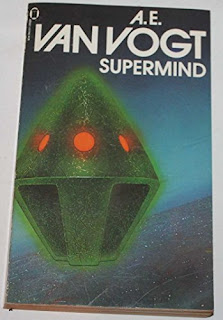Fair to say, Flora Annie Steel's short story "On the Old Salt Road" both surprised me and creeped me out. I've read a fair bit of Steel's work now and this wasn't like any of it. For one thing, it's a ghost story, which is not her usual fare but not that strange for the time. It even has the typical framing device of the main story being told to a group of people round the fire after dinner, one of whom writes the story we're reading. It's the story of the Major, from when he was a young officer in the Raj who had just buried his wife and child. Without telling you too much of the story, he falls into a suicidal depression and heads off on a "holiday" on an old salt road to do the deed. Salt roads were set up along trade routes and patrolled regularly to prevent smuggling, but had been abandoned by the time of the story. Some civil officers used them though when on tour.
The ghostly experiences come upon the young man as if they were real, at no point does he think they're ghosts until a late discovery reveals the infant girl died years before. The bizarre part is when one of the figures in the vision is discovered to still be alive, but had herself recently felt like she was reliving the experience recently. Of course, the experience stops the officer's plan, so he can live to be the senior officer telling the story.
After one of the most awkward opening paragraphs I can think of, Steel produces one of her best stories. Once the Major starts his tale he manages to absorb you, so even though it's a long setup you feel for him. It helps that he is looking back with the wisdom of age, so the desperate feelings he was experiencing at the time are muted and left for the reader to imagine.
The central "weird" moment is done brilliantly and evokes a mixture of fear and sorrow. This is not a scary ghost, but a tragic story playing out again.
The main defects with the story, aside from that opening paragraph, are the infant girl's speech and the brief moment with the officer's servant. Steel has been criticised for her babyish children and this one is a classic example with her "Dot's un away" and "wants to make puff-puff-boom". Dot is also described in the most angelic terms as is Steel's want. It was a trend of the period but it doesn't help. The servant is thankfully mostly absent, he's only really included because to leave him out would not be realistic. So, the racist condescension he is shown by the Major, even in retrospect with the "wisdom" of experience, also fits that realism. It's disgusting and stupid as always, but accurate and mercifully brief.




